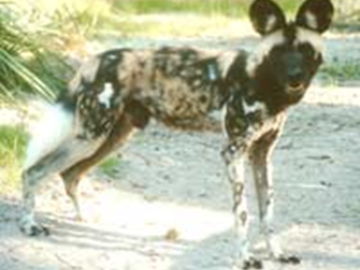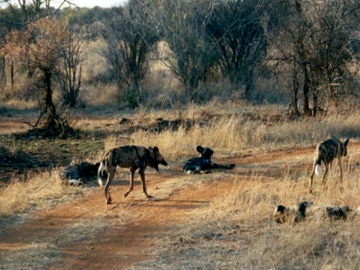Sept. 14, 2020
Pack leadership and why people cower when it comes to teamwork

They’re scrappy and smelly and when you’re out on a big game safari, say in Botswana, the wild dogs of Africa are definitely not part of the Big Five you’ve shelled out to see.
No one knows this better than Dr. Marvin Washington, PhD, (pictured above), co-author of Leading Peak Performance, Lessons from the Wild Dogs of Africa, who discovered that many sports analogies when applied to teamwork don’t always translate when working with a different culture. This is precisely what the expert on organizational change found while working on a contract for the Government of Botswana.
“We were using terms like ‘make an assist,’ be a ‘good teammate,’ and ‘stickhandle’,” he laughs, recalling the many idioms that he and his business partner, Stephen Hacker, first used that made no sense to those in Botswana. But just as bewildering was the advice he got from his safari driver who told Washington, emphatically, that he didn’t want to “see lions . . . they are lazy in politics.”
It was at that moment that Washington and Hacker started listening to how Botswanians spoke about animals and why they prized wild dogs over lions when it came to “leadership, teamwork, perseverance and overall success.”
You may think this is just a muddled debate about semantics and animals, but it’s far more, stresses the University of Alberta business professor and associate dean, whose upcoming UCalgary Alumni Month session on creating a culture of excellence might just lead you to appreciate those mangy dogs, who are actually successful on more than 80 per cent of their hunts. By comparison, lions only average a 40 per cent successful kill rate, points out Washington, adding this suggests the pack mentality of wild dogs is more effective than that of the king of the jungle.
Without releasing too many of his trade secrets on how leaders can best create an empowered and fully aligned pack, Washington reveals that he will elaborate on why he is opposed to the term “teamwork”; why “shared leadership” is where we need to be heading; how critical a shared vision is to an organization’s success; and how leaders can nurture tenacity. And, of course, how an organization has nothing to build upon without a foundation of trust and healthy conflict-resolution techniques.
Washington will also touch on how to lead over Zoom, which he’s dubbed “performance art” (clue: because there is less of you, you must magnify more of you, just as an actor would), explaining how being performative is nerve-racking and stressful. After all, who of us signed up to be a “living headshot?” he muses. And what would a discussion about workplace excellence be these days without discussing the importance of diversity, inclusion and empathy? Those topics will also be covered.
Like the wild dogs of Africa, a culture of success needs the buy-in of your pack. It requires steadfast commitment from leadership, a clear goal (one “kill” at a time) and consistency in the way values are communicated across the organization. Without the right culture, it becomes impossible for leaders to lead and for your business to deliver on its business results.
You’ll come to know all this and why wild dogs sneeze in the morning if you register for Washington’s Alumni Month session, Lessons from the Wild Dogs of Africa: Creating a Winning Culture.
Register for the Sept. 16 session.
In recognition of the Year of Gratitude and in celebration of our alumni community, all attendees will receive a special code for $10 off an online purchase at Calgary Heritage Roasting Company — co-founded by UCalgary grad Jamie Parker, BSc’14.











